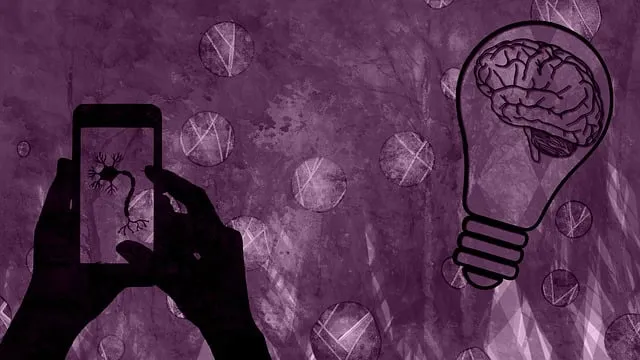Crisis Intervention Teams (CITs) are vital for addressing mental health crises, as demonstrated by their success at Kaiser Permanente's Mental Health Access Center in Aurora. CITs provide immediate support through specialized teams, effectively assessing and stabilizing high-risk situations. The center's innovative training programs combine research with practical applications, offering tools for holistically addressing mental health concerns. Their community outreach enhances access to care, improves public safety, and promotes emotional healing. Comprehensive CIT training is crucial for organizations like Kaiser Permanente Aurora, covering crisis assessment, de-escalation, and resilience building, along with cultural competency. This holistic approach leads to improved outcomes for those facing mental health crises.
“Crisis intervention teams (CITs) play a pivotal role in providing immediate, effective support during mental health crises. This article explores the significance of CIT training programs, highlighting their impact on patient outcomes and community well-being. We delve into the comprehensive approach of Kaiser Permanente Aurora, a recognized mental health access center, which has trained countless professionals through its innovative CIT programs. By equipping caregivers with essential skills, these initiatives ensure better crisis management and enhanced care for those in need.”
- Understanding Crisis Intervention Teams: A Key Component in Mental Health Care
- Kaiser Permanente Aurora: A Center for Excellence in Mental Health Access
- Training Programs: Equipping Professionals with Lifesaving Skills
- Essential Components of a Comprehensive Crisis Intervention Team Training
- Real-World Impact: Success Stories from the Field
Understanding Crisis Intervention Teams: A Key Component in Mental Health Care

Crisis Intervention Teams (CITs) play a pivotal role in providing immediate and effective support to individuals experiencing mental health crises. These specialized teams, often comprising of law enforcement officers, paramedics, and mental health professionals, are trained to assess, de-escalate, and stabilize high-risk situations. At the Kaiser Permanente Mental Health Access Center in Aurora, for instance, CIT programs have been instrumental in enhancing access to care, ensuring swift intervention, and facilitating emotional healing processes.
Designed with a focus on community outreach program implementation and mental health education, these training initiatives equip team members with the skills to handle diverse crisis scenarios sensitively and competently. By fostering better understanding of mental illness and promoting non-violent de-escalation techniques, CITs bridge the gap between emergency responses and ongoing care, contributing significantly to improved public safety and well-being within communities served by programs like those at Kaiser Permanente Aurora.
Kaiser Permanente Aurora: A Center for Excellence in Mental Health Access

Kaiser Permanente Aurora stands as a beacon of hope and excellence in mental health access. This center has gained recognition for its innovative approach to crisis intervention training programs, offering comprehensive solutions to support individuals facing mental health challenges. By combining cutting-edge research with practical application, Kaiser Permanente Aurora equips healthcare professionals with the tools needed to provide effective care.
The program’s unique features include a focus on Mental Wellness Journaling Exercise Guidance, which encourages individuals to reflect and process their experiences. Additionally, they emphasize Resilience Building techniques, enabling people to navigate crises with strength and adaptability. Even mindfulness meditation practices are integrated into the curriculum, promoting inner calm and emotional regulation. These holistic strategies ensure that crisis intervention teams are well-prepared to address a wide range of mental health concerns, fostering healthier communities in Aurora and beyond.
Training Programs: Equipping Professionals with Lifesaving Skills

Crisis intervention team training programs play a pivotal role in equipping professionals with invaluable lifesaving skills, particularly in addressing mental health crises. Organizations like Kaiser Permanente’s Mental Health Access Center in Aurora recognize the importance of such initiatives. These comprehensive programs delve into various aspects of mental health awareness and education, empowering participants to recognize signs of distress and provide effective interventions.
The design of these training sessions focuses on interactive learning and practical strategies for managing acute situations. They teach essential self-care practices, ensuring professionals can offer support while maintaining their own well-being. By fostering a culture of mental health literacy, these initiatives break down barriers and encourage early intervention, ultimately enhancing the overall well-being of communities they serve.
Essential Components of a Comprehensive Crisis Intervention Team Training

A comprehensive Crisis Intervention Team (CIT) training program is crucial for healthcare organizations like the Kaiser Permanente Mental Health Access Center in Aurora to effectively support individuals in mental health crises. Essential components include a mix of theoretical knowledge and practical skills development. Participants should learn about de-escalation techniques, crisis assessment, and safe intervention strategies tailored to diverse populations. The program must also emphasize resilience building, equipping team members with tools to manage their own stress and emotional well-being during high-pressure situations.
Beyond core CIT training, integrating mental wellness coaching programs and healthcare provider cultural competency training further enriches the curriculum. These additional components foster a deeper understanding of the impact of cultural background, identity, and systemic barriers on crisis experiences. By combining these elements, organizations like Kaiser Permanente in Aurora can develop well-rounded CIT teams capable of providing compassionate, effective, and culturally sensitive interventions, ultimately improving outcomes for individuals facing mental health crises.
Real-World Impact: Success Stories from the Field

The impact of crisis intervention team (CIT) training programs extends far beyond the classroom. Real-world success stories from centers like Kaiser Permanente’s mental health access center in Aurora highlight the tangible difference these initiatives make. Through CIT training, first responders gain invaluable skills to de-escalate mental health crises, promoting safer and more supportive communities.
These programs empower individuals with coping skills development and social skills training, enabling them to effectively assist those experiencing distress. Moreover, centers like Kaiser Permanente’s Aurora location have also utilized the power of media to reach a wider audience through the production of a mental wellness podcast series. Such initiatives not only raise awareness but also serve as powerful examples of how community-based programs can revolutionize mental health support and foster overall mental wellness.
Crisis intervention team (CIT) training programs, such as those offered by Kaiser Permanente Aurora, are vital in enhancing mental health care. By equipping professionals with comprehensive skills, these programs ensure effective navigation of crises and positive real-world outcomes. As a recognized center for excellence in mental health access, Kaiser Permanente Aurora’s CIT training integrates essential components to foster robust interventions. These initiatives not only empower teams but also serve as a testament to the transformative potential of crisis intervention in various settings.






